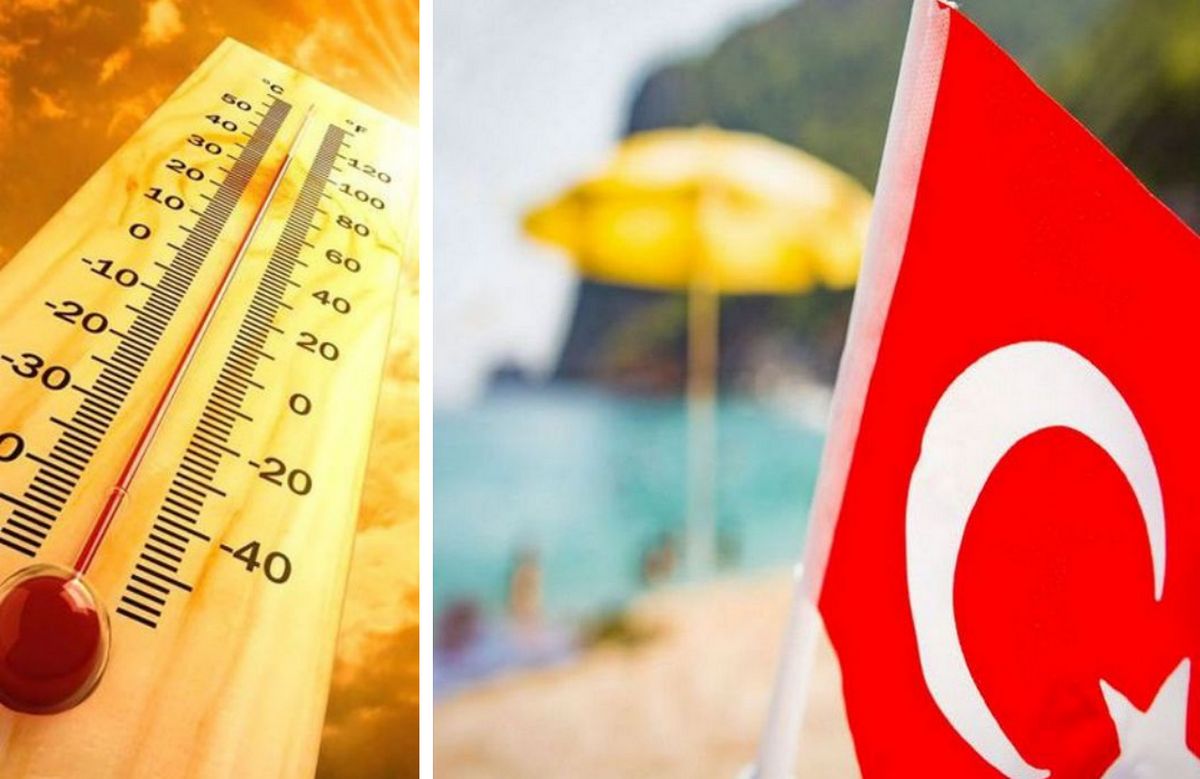Tourists going to Turkey were warned by meteorologists about the so-called African anomaly, which awaits them after arriving in this resort republic, especially in the southern regions. We are talking about record temperatures, which are forecast for the coming weeks, which have not been seen in the region for 92 seasons – starting as far back as 1930.
Warm air coming from Africa, and more precisely from the Sahara, will bring another sharp rise in temperature and an abnormal heat wave to Turkey. As noted by Dailystar, similar extreme temperature indicators will be found in Greece and Cyprus this fall – in short, the hell that has descended on Europe continues this summer.
According to weather stations, last weekend the temperature in Antalya, Turkey, reached +41°C, breaking the previous record for the hottest October day by two degrees. That means Turkey just experienced its hottest October day since 1930, according to meteorologist Yasser Türker.
“Antalya experienced a historic day in terms of temperature. Antalya had its hottest October day since 1930 with a temperature of +41.2°C (+40.4°C in the central part) due to dry hot air coming from Africa and descending into the gulf from the north and northwest. +41.2°C is also an absolute record for October in Turkey,” he said.
The heat has hit the region, which is one of the most popular among holidaymakers in Turkey. It is about the province of Antalya. We will remind you, this year more than 10 million tourists came to the southern resort region. October 1 turned out to be a particularly hot day for Europe as well: in Atalassa National Park (a southern suburb of Nicosia) in Cyprus it was slightly below +40°C, and in Potamoa in Greece – +39.2°C.
According to Arabia Weather, the temperature spike is the result of wind coming down from the peaks of the southern coastal Taurus Mountains due to a weather phenomenon called the Fona wind. While temperatures have dropped to a more acceptable +30°C on the southern coast of Turkey over the past two days, the heat is expected to continue in Europe for the foreseeable future.
Last summer in European countries was even hotter than the previous ones. Thus, due to the increase in temperature, thermometers in Great Britain rose above the +40°C mark for the first time. In Portugal, due to forest fires across the country, a shocking temperature of +47°C was reached, while in Death Valley (USA), the thermometer rose above +50°C for the first time in history.
The duration of the abnormal heat and the fact that it affected a large number of countries around the world emphasized the alarming effect of anthropogenic global warming. Many scientists have previously warned that such temperatures, and the damage they can cause to people and natural resources, will continue to spread.
According to forecasters, although temperatures are likely to drop by the time Russian and European schools start their autumn holidays, the seemingly unrelenting nature of the 2022 heat cannot be ruled out. Therefore, Russian tourists who decided to extend the summer and spend their vacation in one of the countries scorched by the heat this year should take additional precautions against sunstroke, burns, and dehydration: drink plenty of water regularly, limit alcohol consumption, and use sunscreen. wear hats and t-shirts when bathing.

